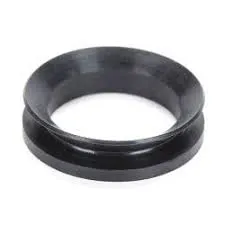7 月 . 27, 2024 17:36 Back to list
Exploring Essential Auto Parts for Reliable Performance and Long-lasting Oil Seal Solutions
Understanding Auto Parts The Importance of Oil Seals
When it comes to automotive engineering, the myriad of parts that make up a vehicle work together in a finely-tuned orchestra. Among these parts, oil seals play a crucial role in ensuring the vehicle operates efficiently and reliably. Despite their small size, oil seals are integral to the overall functionality of numerous components.
What is an Oil Seal?
An oil seal, also known as a rotary seal or grease seal, is a mechanical device that is used to contain lubricants within a mechanism while preventing contaminants from entering. Typically made from rubber or synthetic materials, oil seals are designed to withstand high pressures, chemicals, and temperature variations. They come in various shapes and sizes to fit different applications.
How Does an Oil Seal Work?
The primary function of an oil seal is to keep oil contained within the machinery while stopping dust, dirt, and other pollutants from infiltrating. This is achieved through a tight seal that forms around a rotating shaft. The design of an oil seal usually includes a lip that exerts pressure against the rotating surface, maintaining a barrier that keeps lubricants in and contaminants out. This is crucial for components such as the crankshaft or camshaft in an engine, where proper lubrication is essential for preventing wear and tear.
Why Are Oil Seals Important?
1. Prevention of Lubricant Leakage One of the most significant functions of oil seals is to prevent lubricants from leaking out. Any loss of oil can lead to increased friction between moving parts, resulting in overheating and eventual failure. This makes the use of reliable oil seals an essential aspect of vehicle maintenance.
2. Protection Against Contaminants Oil seals act as protective barriers that shield internal components from dust, dirt, and abrasive materials. Contaminants entering the lubrication system can cause significant damage, leading to costly repairs and decreased vehicle longevity.
auto parts oil seal

3. Enhancing Efficiency By maintaining the integrity of lubricants within the engine or drivetrain, oil seals contribute to overall mechanical efficiency. When components are well-lubricated, they operate smoothly, resulting in better fuel efficiency and performance.
4. Cost-Effectiveness Investing in high-quality oil seals can save vehicle owners a substantial amount of money in the long run. By preventing leaks and protecting vital engine parts, they help avoid expensive repairs and prolong the life of the vehicle.
Types of Oil Seals
Oil seals come in various types, each designed for specific applications. Common types include
- Single Lip Oil Seals Used for applications usually dealing with medium pressures and moderate speeds. They are easy to install and provide effective sealing. - Double Lip Oil Seals Designed with two sealing lips, these are ideal for applications that involve higher pressures and more risk of contamination.
- Spring-Loaded Oil Seals These seals have a metal spring that helps maintain pressure against the shaft, improving the seal’s effectiveness in high-speed situations.
- Mechanical Seals Often used in pumps and other applications where high pressure is an issue, mechanical seals provide an extra layer of protection against leaks.
Conclusion
In summary, oil seals are essential components in automotive and machinery applications. Their simple yet effective design helps maintain the necessary lubrication within a vehicle while preventing harmful contaminants from causing damage. Understanding the critical role that oil seals play can aid vehicle owners and mechanics alike in making informed decisions about maintenance and part replacements, ensuring that vehicles remain in optimal condition for years to come. Investing in quality oil seals is a step towards reliability, efficiency, and longevity in any automotive system.